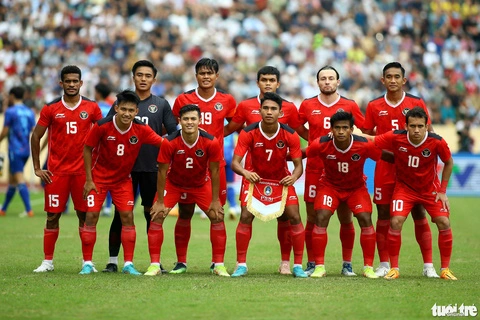
U23 Indonesia FC
International friendlies, tournaments, and collaborations pave the way for knowledge exchange and growth. Such international exposure can lead to increased sponsorship and investment, ultimately benefiting the entire football community in Indonesia okvip.
Challenges Facing U23 Indonesia FC
Despite its successes, U23 Indonesia FC faces numerous challenges that could impact its trajectory moving forward.
Competition Within Southeast Asia
The competitive landscape in Southeast Asian football is ever-evolving. Countries like Vietnam, Thailand, and Malaysia have made considerable investments in their youth programs, resulting in a highly competitive environment.
To stay ahead, U23 Indonesia FC must continue refining its training methodologies, tactics, and recruitment strategies. Analyzing the strengths and weaknesses of rival teams will be crucial in ensuring that the team remains competitive on the regional stage.
Financial Constraints
Funding is a significant challenge for many football clubs, and U23 Indonesia FC is no exception. While there is growing interest in the team, securing consistent financial backing remains a hurdle.
Attracting sponsors and investors willing to commit resources is essential for sustaining operations and expanding initiatives. Implementing effective marketing strategies and enhancing fan engagement can play a pivotal role in increasing revenue streams.
Balancing Development and Performance
The dual objective of developing young talents while achieving immediate results is a delicate balancing act. On one hand, nurturing players takes time, but on the other hand, there is pressure to secure victories and deliver performances that resonate with fans.
This tension can lead to tough decisions regarding player selections and coaching strategies. It is vital for the management of U23 Indonesia FC to prioritize long-term growth without compromising on competitiveness.
Maintaining Player Morale and Mental Health
The mental health of athletes is an increasingly recognized concern, and it is particularly relevant in a high-pressure environment like football.
Players may face challenges related to performance anxiety, burnout, or personal issues. Ensuring that adequate mental health resources and support systems are in place is essential for maintaining morale and well-being among players. This ensures a positive and productive environment conducive to performance and development.
Conclusion
U23 Indonesia FC represents the heartbeat of youth football in Indonesia. Through its commitment to developing young talents and fostering a winning culture, the team is paving the way for a brighter future in Indonesian football. While challenges abound, the foundation laid by the coaches, players, and supporters positions U23 Indonesia FC as a cornerstone of hope and aspiration for aspiring footballers across the nation.
As the journey continues, the impact of U23 Indonesia FC promises to resonate far beyond the pitches, inspiring generations and shaping the future of football in Indonesia. The ongoing efforts to nurture talent, engage the community, and elevate the status of football reflect a commitment to achieving excellence and building a legacy that will endure for years to come.





